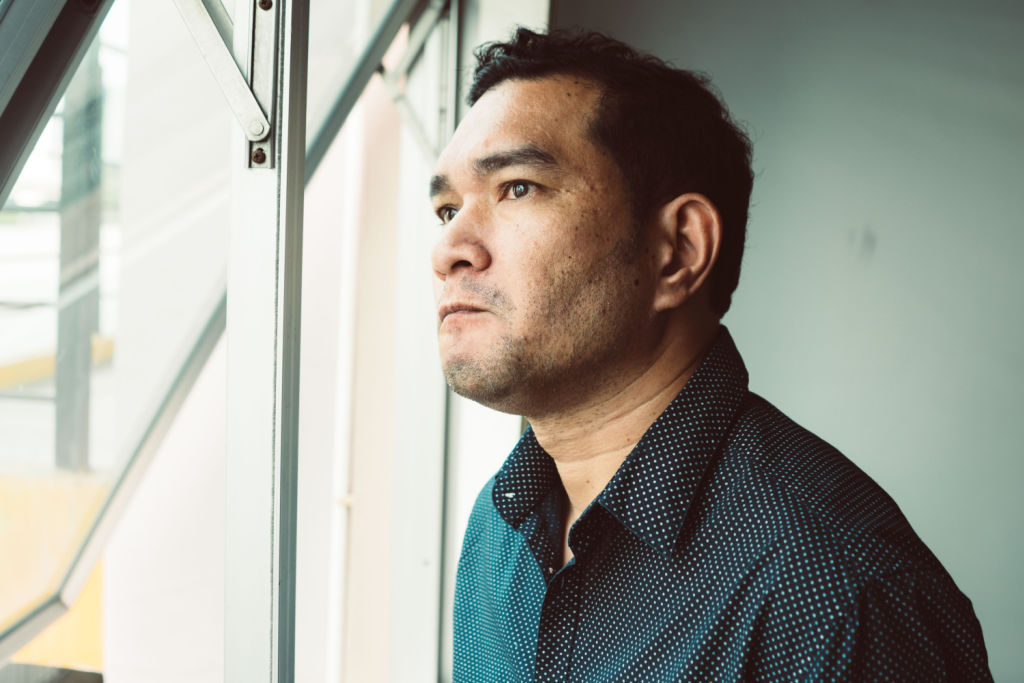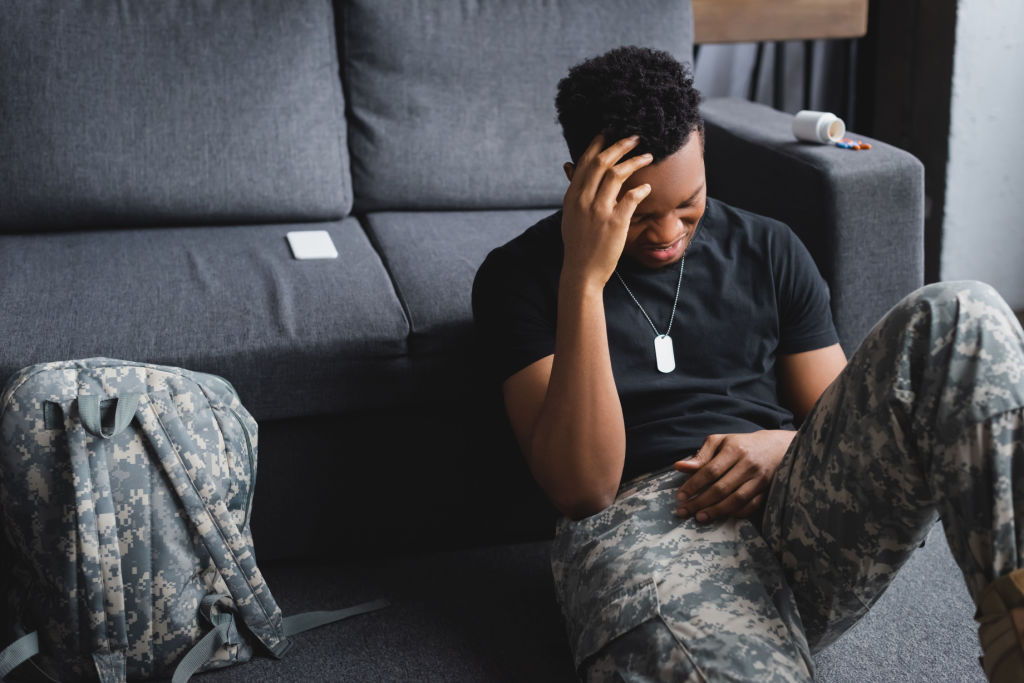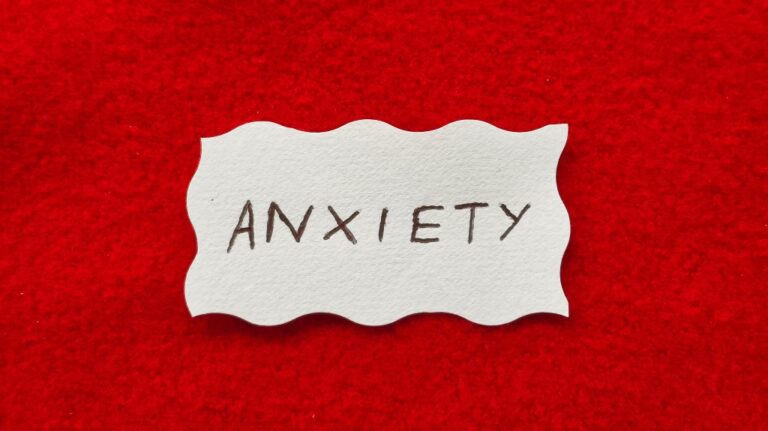Can You Get a VA Rating for Anxiety?
Are you a veteran experiencing anxiety as a result of your military service? Don’t let the burden of anxiety weigh you down any longer. You may be eligible for VA disability compensation, with ratings ranging from 10% to 100%, to support you in your journey toward healing and recovery.
According to the VA, an estimated 43% of veterans who served in Iraq or Afghanistan have been diagnosed with at least one mental illness, including anxiety. Astonishingly, only a fraction of these veterans, less than 25%, actively seek the support and benefits they are entitled to. We believe that no veteran should suffer in silence, and we are here to help you navigate the process of accessing the benefits you deserve.

Anxiety and Veterans Benefits
Your journey as a veteran may have been accompanied by the burdens of anxiety, both during and after your service. Anxiety is a prevalent mental health condition that affects countless veterans, and its impact on your daily life cannot be overlooked.
The effects of anxiety can take many forms, such as a constant feeling of unease, debilitating panic attacks, social anxiety that hinders interactions, or trouble sleeping. These symptoms can disrupt your ability to work, socialize, and carry out even the simplest of tasks. Left unaddressed, anxiety can lead to further complications like depression, substance abuse, and thoughts of suicide.
Recognizing the importance of seeking help is the first step towards regaining control. The Veterans Affairs (VA) provides a range of mental health services tailored to veterans, including therapy and medication options. These resources are designed to support you in managing your anxiety and improving your overall well-being. Furthermore, an anxiety VA rating can unlock additional benefits, enhancing your quality of life and providing the assistance you may need.
Navigating VA Requirements for Anxiety Benefits
Before you can access the benefits you deserve, it’s crucial to understand and fulfill the requirements set by the Veterans Affairs (VA) for your anxiety claim. Meeting these criteria ensures that you establish a strong case for your disability benefits.
First and foremost, you must obtain a formal diagnosis of your anxiety condition and establish a clear link between your disability and your active duty service. Additionally, presenting relevant medical records and supporting evidence that demonstrates the severity of your anxiety is essential in bolstering your claim.
To begin the process, it is advisable to consult with a healthcare professional who can assess and document your symptoms, which may include sleep problems, fatigue, irritability, and persistent worry. Their evaluation and documentation will serve as valuable evidence to support your claim.
When establishing a service connection, it is crucial to gather records from the time you first noticed the onset of your anxiety. These records can encompass statements from friends and family who have observed your condition, reports from counseling appointments, and information regarding your employment status.
If your anxiety has significantly impacted your ability to maintain steady employment, providing this information can be pivotal in securing a higher disability rating. Demonstrating the extent of your occupational impairment can increase the likelihood of receiving a more favorable assessment of your condition.
Understanding Potential VA Ratings for Anxiety
After receiving a formal diagnosis and filing your claim with the VA, you will undergo an evaluation to determine the severity of your anxiety, which in turn affects the assigned disability rating.
For mental health conditions like generalized anxiety disorder, there is a high probability of receiving a minimum 30% rating if the condition is proven to be service-related.
At a 30% VA rating, individuals experiencing mild social and occupational impairment due to anxiety may face challenges in the workplace but can still seek employment.

A 50% rating indicates reduced reliability, productivity, mood swings, impaired judgment, and lack of motivation. It becomes increasingly difficult to sustain relationships and maintain employment.
A 70% VA rating signifies significant difficulty in managing personal relationships and coping with stress. Panic attacks and suicidal thoughts may be present. Compensation is higher at this level due to the profound hindrance in working with others.
Finally, a 100% disability rating reflects substantial impairment in performing daily tasks, frequent disorientation, communication struggles, and severe occupational and social limitations. At this stage, work becomes unfeasible, and extensive support is necessary.
Understanding these potential ratings allows you to anticipate the compensation and support you may receive based on the level of impairment caused by your anxiety.
What Rating Does VA Give for Anxiety?
The VA Ratings Schedule Ranges from:
- 0 percent (no compensation)
- 10 percent
- 30 percent
- 50 percent
- 70 percent
- 100 percent (Totally Disabled)
Establishing Service Connection for Anxiety: Key Elements for Your VA Disability Claim
To effectively prove service connection for your anxiety in your VA Disability claim, there are three crucial elements that you need to demonstrate.
Firstly, you must provide a current diagnosis of anxiety from a qualified healthcare provider. This official diagnosis serves as a critical piece of evidence to substantiate your claim and highlights the existence of your anxiety condition.
Secondly, you need to establish an in-service event or incident that directly caused your anxiety disorder. This event could be a traumatic experience, exposure to stressful situations, or any other incident during your active duty service that triggered or contributed to the development of your anxiety.
Lastly, it is essential to obtain a medical nexus statement from a medical professional. This statement serves as a bridge linking your anxiety condition to the specific in-service incident. The medical professional will examine your medical records, evaluate the evidence, and provide an expert opinion affirming the connection between your anxiety and the event or incident that occurred during your service.
These medical pieces of evidence play a vital role in supporting your veterans disability claim, regardless of whether it pertains to anxiety, back pain, or any other medical issue you may be facing.
It’s important to note that there is also the possibility of another service-connected condition contributing to your anxiety. This coexistence of conditions can exacerbate the symptoms of anxiety or interact with each other. Exploring this aspect and understanding the potential interplay of different service-connected conditions is crucial for a comprehensive evaluation of your overall health and well-being.
Getting Help from a VA Benefits Attorney for Anxiety
If you have anxiety that is service-connected, you need to know that you don’t have to live this way. If you need help applying for VA benefits due to anxiety – or if you’ve already been denied – a VA benefits attorney can help. Having an attorney involved in your case greatly increases your chances of having your claim approved.



